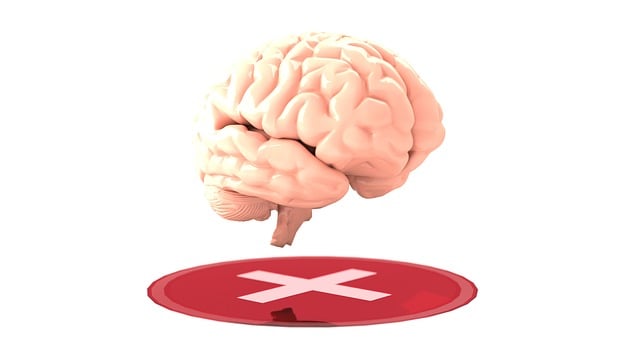Louisville Young Adults Therapy leads comprehensive stigma reduction efforts through education, awareness campaigns, and supportive programs. By equipping young adults with mental health knowledge, crisis intervention skills, and safe spaces for open dialogue, they empower peers to recognize and address mental health issues early. Policy advocacy and lobbying drive systemic changes, enhancing access to care, normalizing support, and fostering a culture of care and understanding in Louisville.
Mental illness stigma persists, hindering access to critical care for many in Louisville. This article delves into targeted efforts to reduce this barrier, focusing on education and awareness campaigns tailored to young adults, open conversations that debunk myths, supportive community initiatives like peer mentorship groups, and policy advocacy driving systemic change. Understanding the impact of stigma and leveraging these strategies is key to providing effective therapy for Louisville’s young adults.
- Understanding Stigma: Its Impact on Mental Health Seekers in Louisville
- The Role of Education and Awareness Campaigns for Young Adults
- Encouraging Open Conversations: Debunking Myths about Mental Illness
- Support Groups and Peer Mentorship Programs: Building Community
- Policy Changes and Advocacy: A Pathway to Systemic Stigma Reduction
Understanding Stigma: Its Impact on Mental Health Seekers in Louisville

Stigma surrounding mental illness can have a profound impact on individuals’ willingness to seek help, especially among young adults in Louisville. Many face barriers when it comes to opening up about their struggles due to fear of judgment and societal stereotypes. This hidden burden can exacerbate existing mental health challenges, such as depression and anxiety, leading to increased isolation and a reluctance to engage in effective treatments like Louisville young adults therapy.
The effects are far-reaching, impacting not only personal well-being but also community engagement and overall social cohesion. By promoting understanding and compassion through initiatives focused on burnout prevention and depression prevention, Louisville can foster an environment where mental health seekers feel supported. Compassion cultivation practices have shown promise in reducing stigma, encouraging help-seeking behaviors, and ultimately improving access to much-needed therapy services for young adults in the region.
The Role of Education and Awareness Campaigns for Young Adults

Stigma reduction efforts targeting Louisville young adults through education and awareness campaigns are proving vital in destigmatizing mental illness. These initiatives focus on providing accurate information about various mental health conditions, dispelling myths, and fostering empathy within the community. By educating young adults about the signs of distress, available support systems, and effective coping strategies like positive thinking and conflict resolution techniques, these campaigns empower them to recognize and address mental health issues early on.
The integration of crisis intervention guidance into these educational programs equips Louisville young adults with essential tools for navigating mental health crises. Through interactive workshops and peer-led discussions, they learn valuable crisis intervention skills, enabling them to offer support to peers in need. This collective effort not only promotes a culture of care but also ensures that young adults have access to the resources and understanding necessary to prioritize their mental well-being, ultimately reducing the impact of stigma associated with seeking therapy in Louisville.
Encouraging Open Conversations: Debunking Myths about Mental Illness

Encouraging open conversations is a powerful tool in the fight against mental illness stigma. By fostering honest discussions about mental health, Louisville Young Adults Therapy aims to create an environment where individuals feel comfortable sharing their experiences without fear of judgment. This shift can significantly contribute to reducing the stigma surrounding depression prevention and other mental health challenges.
Debunking myths is a crucial aspect of this process. Through compassionate cultivation practices and culturally sensitive mental healthcare, professionals can address misconceptions about mental illness. For instance, emphasizing that mental health issues are not a sign of weakness or personal failure helps in normalizing these experiences. This approach fosters empathy and understanding, ultimately encouraging those struggling to seek support without embarrassment or anxiety, just as Louisville Young Adults Therapy prioritizes in its practice.
Support Groups and Peer Mentorship Programs: Building Community

Support groups and peer mentorship programs are powerful tools in reducing the stigma surrounding mental illness, especially for young adults navigating their emotional well-being in Louisville. These initiatives foster a sense of community by providing safe spaces where individuals can openly discuss their experiences, challenges, and victories related to mental health. In these supportive environments, young adults find encouragement and understanding from peers who have faced similar struggles, fostering a powerful bond that promotes resilience.
Louisville Young Adults Therapy plays a crucial role in organizing such programs, offering not just therapy sessions but also opportunities for peer mentorship. By involving individuals who have successfully managed their mental health journeys, these programs become living testaments to the possibility of recovery and improved quality of life. This approach not only aids in stigma reduction but also empowers participants through knowledge sharing and risk management planning, essential components in any comprehensive mental health strategy, even when considering Stress Management Workshops Organization or implementing Emotional Well-being Promotion Techniques.
Policy Changes and Advocacy: A Pathway to Systemic Stigma Reduction

Policy changes and advocacy play a pivotal role in systemic stigma reduction for mental illness. By lobbying for supportive legislation, organizations like Louisville Young Adults Therapy can push for reforms that prioritize access to quality care. This includes funding initiatives for comprehensive crisis intervention guidance, ensuring communities have resources for emotional healing processes, and integrating stress management workshops into educational systems.
Advocacy also involves raising awareness among policymakers about the real-life impact of mental health challenges. Through impactful storytelling and data-driven arguments, these efforts can lead to more inclusive policies that reflect the needs of individuals struggling with their mental well-being. Such systemic changes create an environment where support is normalized, fostering a culture of care and understanding for all.
Mental illness stigma reduction is a multifaceted effort crucial for creating a supportive environment in Louisville. By combining education campaigns targeting young adults, open conversations that debunk myths, peer support groups, and policy advocacy, significant progress can be made. Encouraging Louisvillians to embrace diversity in mental health experiences fosters an inclusive community where individuals feel comfortable seeking therapy, breaking down barriers, and enhancing overall well-being for all, especially young adults in need of Louisville Young Adults Therapy services.












